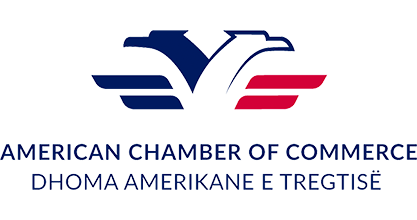As Albania progresses toward European Union integration, one of the key strategic priorities is the development of a robust insurance sector—recognized not only as a financial instrument but as a critical pillar of economic and social stability.
Currently, the insurance market in Albania is significantly underdeveloped compared to regional peers and EU countries. For instance, while the average insurance premium per capita in Albania is less than €100, in EU countries it exceeds €2,000. This stark disparity highlights a widespread lack of awareness and limited use of insurance tools.
Although recent years have seen steady growth in voluntary health and vehicle insurance, the greatest untapped potential lies in property and capital insurance—especially against fundamental risks such as fire, earthquakes, and floods. Data from regulatory authorities show that only about 5% of the country’s total property value is currently insured.
The last decade has brought noticeable climate change, resulting in more frequent and severe weather events, including floods, wildfires, and earthquakes. These events have revealed serious weaknesses in the current risk management system, underlining the urgent need to strengthen insurance as both a preventive and compensatory mechanism.
While public debate often focuses on emergency response capabilities, there is little discussion about the actual level of insurance coverage and how well it protects individuals and businesses. It is important to stress that governments are not—nor should they be—responsible for covering private losses caused by natural disasters. Their primary role is to protect human life through civil emergency structures, not to compensate financial damages. Even the government insures its own properties against these risks through the insurance market—an internationally accepted standard.
Key Stakeholders in the Insurance Sector
- The Regulator – Financial Supervisory Authority (FSA)
The FSA oversees and regulates the insurance market. Beyond enforcing compliance with laws and standards, it develops secondary legislation and regulatory frameworks that support market stability and growth. - Insurance Companies (Operators)
These companies provide a range of insurance products across all risk categories, aligned with international risk management standards and best practices. - Insurance Brokers (Intermediaries)
Brokers serve as intermediaries between clients and insurance companies. They offer professional advice, product comparisons, and advocacy to ensure consumer interests are protected. - Consumers
Today’s consumers seek reliable information about potential risks and protection strategies. As awareness grows, so does the understanding of insurance as an essential part of financial planning and risk management.
A Brief History of the Insurance Sector in Albania
Albania’s insurance sector dates back to the 1930s, when the first insurance companies entered the market alongside Italian investments—driven by mutual economic interests between the Albanian and Italian governments.
Following World War II, the sector was nationalized under the state-controlled economy. It began its transition to a market-based model in the early 1990s, with the broader liberalization of the Albanian economy.
Unlike in some countries where mandatory third-party liability insurance drove sector growth, insurance development in most Western nations was largely fueled by voluntary insurance products. Albania’s future growth depends on a similar shift—toward greater uptake of voluntary insurance as a tool for individual and collective resilience.
Dëfrim CARCANI
Insurance Sector Specialist

